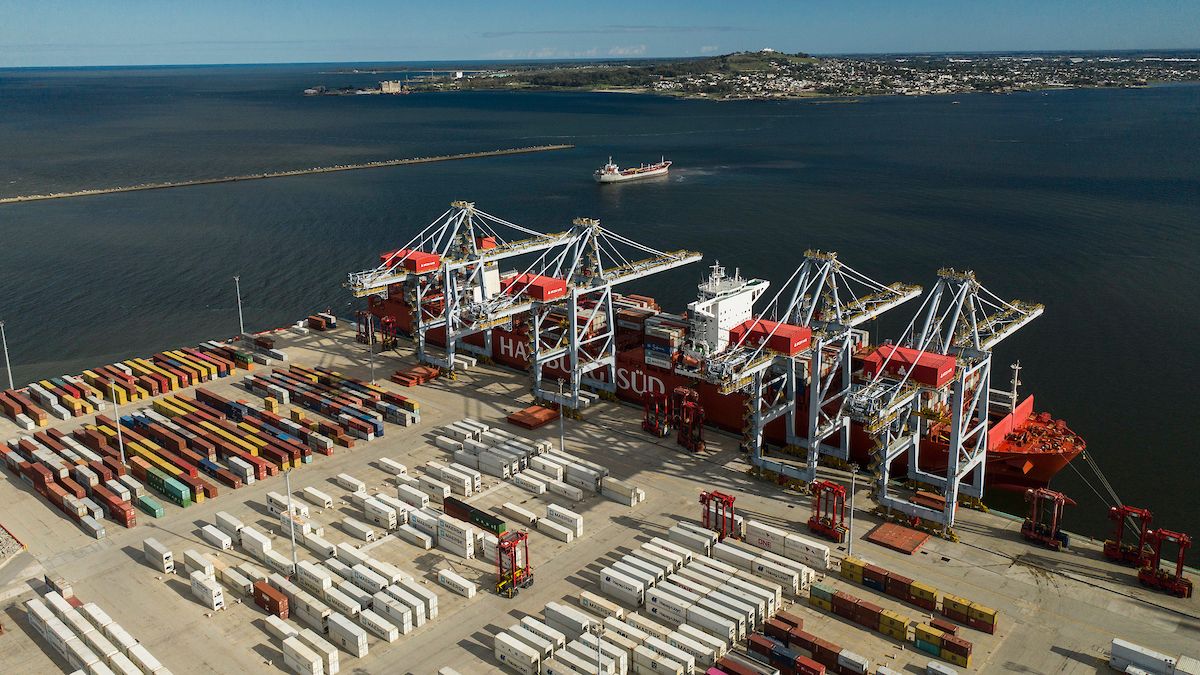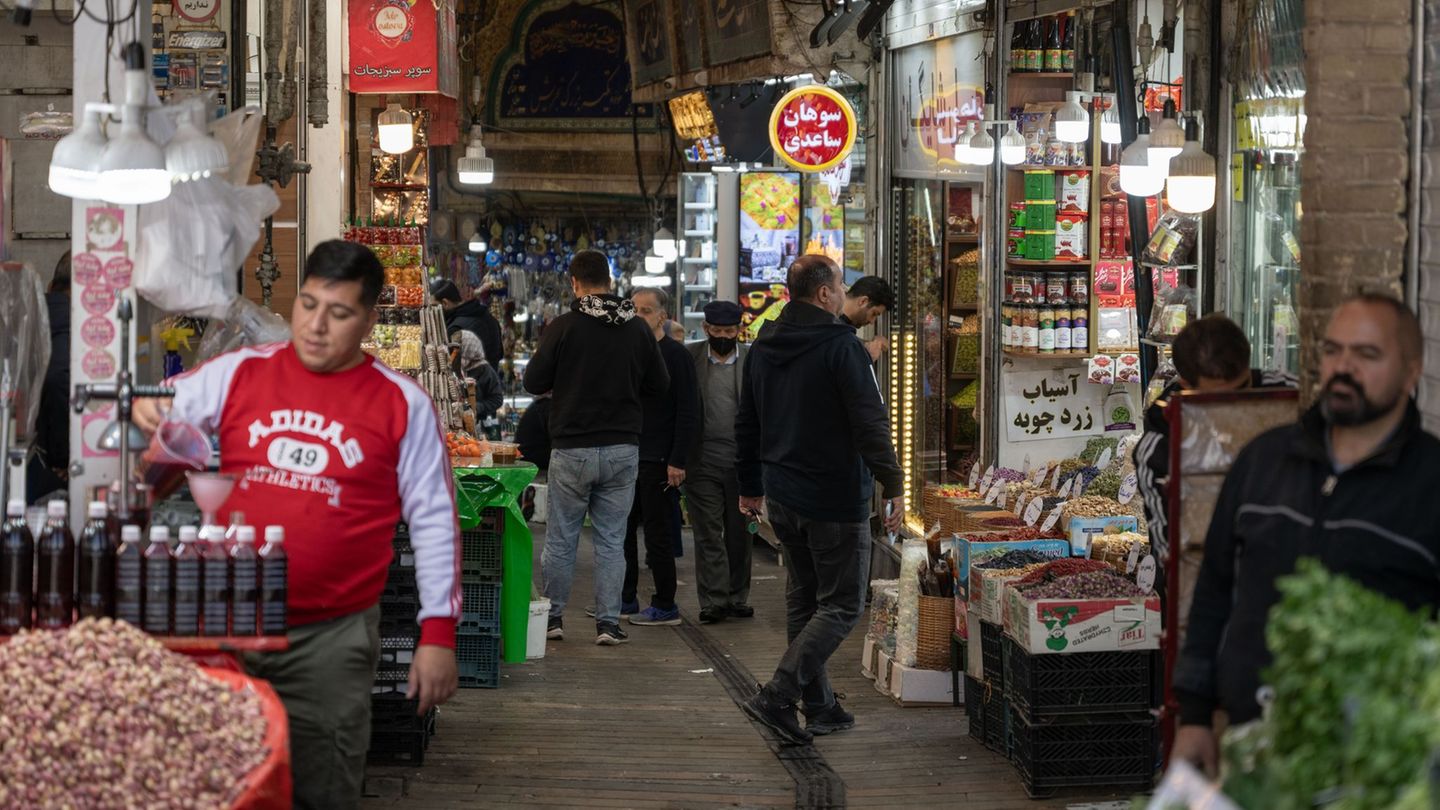The 17% rate increase in the Cuenca del Plata Terminal (TCP) added several chapters, which included unconsulted decisions from the concessionary company Katoen Natie, criticism of the rural unions and a brake on the government, that gave rise to negotiations after which the update was authorized, which is defended by the company and the Executive, but they condemn the sectors exporters.
The origin of the conflict, associated with the drop in exchange rate and issues related to the competitiveness of the Uruguayan ports, dates back to the end of June, when the port company in charge of the TCP, Katoen Natie, announced a rise of 24.1% under the argument of “maintaining the economic equation”.
Quickly, industrialists and exporters came to the crossroads, pointing out its “great negative impact” on the competitiveness and even from the government they considered the increase “excessive”, for which reason the update did not prosper. However, a negotiating table began that at the beginning of the week resulted in the novelty of the 17% increase in port fees.
The exchange rate, one of the variables
He TCP Institutional Relations Manager, Fernando Correa, He pointed out that the decision “seeks that the impact of the measure be the minimum possible”, mainly for the exporters.
Belt recalled that when the agreement with the government was signed and the concession was extended until 2081, the dollar It was around 43 pesos, while today it is below 38 pesos. “That is why it is necessary to correct the economic mismatch, pay the operating costs that our terminal has and comply with the cash flow commitments,” he specified about carrying out works in the Port of Montevideo.
Discomfort of exporters due to competitiveness
The increase in tariffs did not go down well in the sectors exporters, from where they came out in unison to criticize the measure and asked the government to back down. Through a statement, the agricultural unions spoke of “a new and severe damage to the national productive sector” and pointed out that “it is charged with a cost that further aggravates the sustained loss of competitiveness”.
Specifically, they asked the Executive guarantee “that the costs of this terminal stop representing another obstacle to the competitiveness and that port be, as it should, a strategic partner of those who produce and contribute their work and effort to the development of the country”.
The high costs and the need for a Regulatory Unit
Faced with the high costs, which made the Port of Montevideo in one of the least competitive in the world, the Union of Exporters of Uruguay (UEU) He proposed long ago the creation of a Port Services Regulatory Unit. The objective is that there is “effective control” when deciding increases.
The costs of Port of Montevideo “they give us three and a half times more expensive than ports that compete with us”, such cases of Chile and Brazil, held weeks ago in dialogue with Ámbito.com Facundo Marquez, President of the UEU. Along the same lines, the executive secretary of the UEU, Teresa Aisenberg, He recalled that there was “a 300% increase in rates in five years”, for which reason it was issued in favor of the existence of an analysis committee.
The government’s gaze
By giving the vision of the Executive, the Minister of Transport and Public Works, José Luis Falero, considered that “only one parametric adjustment was made, which in the first instance was going to be of a higher percentage.” In this line, he indicated that the increase “is reasonable within what has been the salary increase and the costs that the Uruguay, that have been very high and on which we must continue working ”.
Regarding this situation, he admitted that the national administration seeks to “end the government period with a lower rate than when we took office” and compared: “When we started, there had been an excessive increase of more than 300% in two or three years. This government reduced the rate.”
Katoen Natie’s response, after criticism
Faced with the barrage of criticism for the rise, Katoen Natie issued a statement stating that the statement against the adjustment is “clearly designed with the purpose of confusing public opinion” and considered that there is “a rigged handling of figures.”
“Already on multiple occasions Terminal Cuenca del Plata SA has warned representatives of the UEU on the veracity of the information that this organization makes public and repeatedly in relation to the issue of port fees”, The Belgian company questioned the exporters, ruling that it is “a falsehood” that the costs to export in the Port of Montevideo have lagged behind others in the region.
In arguing his position, he pointed out that “the Uruguayan exporters place their products abroad with lower logistics costs than in other ports”. For the firm, this “explains that its container movements increase at the same time that they fall in other regional ports.”
Source: Ambito




